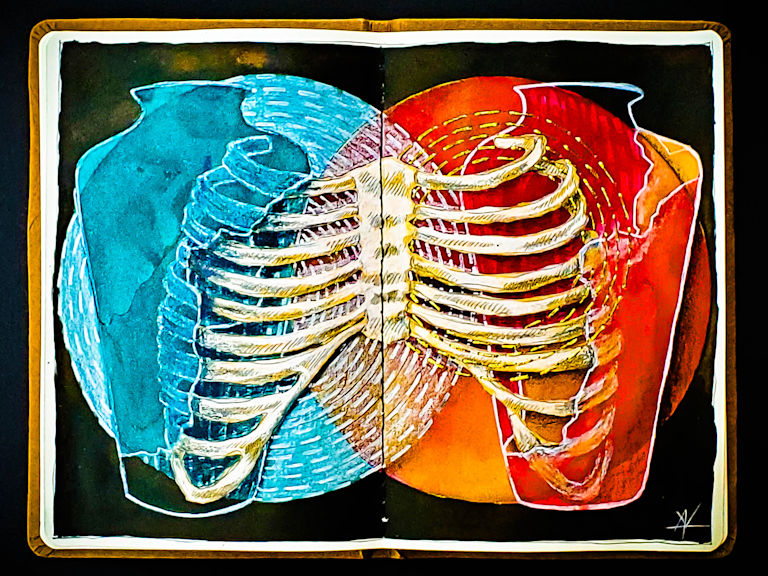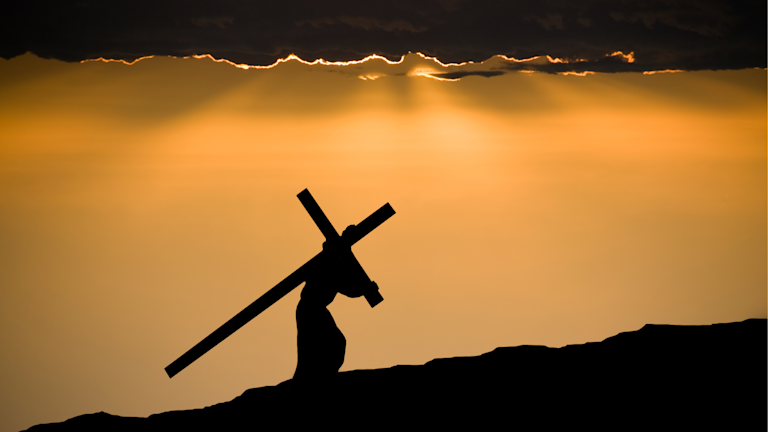May 31, 2024
In an incredible chapter called, “the Wedding of Cana,” Dostoevsky imagines Alyosha’s transformation as a process that culminates with him hearing the story of Jesus turning water into wine. This occurs while Father Paissy reads the Gospel over the dead body of his mentor, the elder Zosima. Alyosha is portrayed in the story as someone who is seeking the light of love “out of the darkness.” (The Brothers Karamazov, 18). He was also, like Mitya, born into and raised in the conflictual and debauched environment fostered by their human father, Fyodor Karamazov.
In passionate devotion, Alyosha latched onto Zosima as a spiritual father, as one who could help him on the path out of spiritual darkness. For Alyosha, this man represented a hope for the renewal of the world. His influence was widespread. Yet when Zosima died and his reputation was being drawn through mud by jealous monks, Alyosha was tempted to seek retribution (The Brothers Karamazov, 339).
In seeking for a "higher justice," Alysosha goes to the monastery, where the body of Zosima lays on a bed and the Gospel is being read over him. Father Paissy is reading the story of water being turned to wine. The Gospel reminded Alyosha that God came to humankind for their joy, "Ah, yes, I've been missing it and I didn't want to miss it, I love that passage: It's Cana of Galilee, the first miracle . . . Ah, that miracle, ah, that lovely miracle! Not grief, but men's joy Christ visited when he worked his first miracle, he helped men's joy . . ." (The Brother's Karamazov, 360).
Despite the struggle we see in his fragmented thinking in the story; a spiritual struggle for his soul, the joy of God was breaking through to him.
Acknowledging Unbelief
Something began changing me in my exile, although I was nothing like Alyosha. As I worked in solitude on the farm, I had much time to think. In my post, "A Precarious Solitude," I wrote how I began reading psychology, trying to ascertain some kind of meaning and understanding regarding my life.
I also began reading about Christianity.
I picked up the book Left Behind that sat on my parent's coffee table. The story pertains to the "end of the world," providing an interpretation of the book of Revelation. While the apocalyptic theology of the book requires a longer discussion, I cite it to respect the faith of my parents and the church of which I was raised. Moreover, I refer to it because it was the actual book that caused me to confront my unbelief.
I began reading it in January of 1997, alone in my room on a cold winter night. I came to acknowledge that, I did not, in fact, believe that God sent Jesus to the world as the messiah. I was a Christian only by family and cultural association. There was no deep conviction that I needed to be reconciled with God, that I needed forgiveness.
However, it was not as if I felt neutral about this. There was something in me that resisted and felt threatened by Christianity. In particular, I felt a certain resentment toward the name of Jesus. The thought of this name, as a Lord and Saviour, offended the belief in my inherent independence, apart from a higher spiritual authority. The identity I constructed for myself was challenged. I sneered at the thought. And, moreover, what would my friends think of me?
I literally threw the book in the corner of my room. I decided I was tired and needed sleep.
Water into Wine
In The Brothers Karamazov, after Alyosha hears the story of Jesus turning water into wine, he falls asleep and has a dream of the great banquet of the Messiah. The elder is there, inviting him to come and enjoy the feast and to drink the new wine of Christ. “‘We are rejoicing,’ the little wizened man continues, ‘... we are drinking new wine, the wine of a new and great joy. See how many guests there are?’” (The Brothers Karamazov, 361)
Alyosha wakes up and something burns in his heart. Something changed him, entered into him. He experiences a kind of release, "Something burned in Alyosha's heart, something suddenly filled him almost painfully, tears of rapture burst from his soul . . . He stretched out his hands, gave a short cry, and woke up . . . " (The Brother's Karamazov, 362).
He felt a new desire arise in him, a desire to “forgive all for all," "He wanted to forgive everyone and for everything, and to ask forgiveness, oh, not for himself! but for all and for everything, 'as others are asking of me,' rang in his soul" (The Brothers Karamazov, 362). It was a desire to let go of all unforgiveness and the desire for revenge and retribution, feeling instead a new unity with the universe.

While this is a fictional story, there must be something true here that Dostoevsky himself knew and experienced as he reflected on the meaning of the Gospel, its transformative power. Certainly, we can learn much from modern psychology and many people have benefited from therapy and counselling, but is there something too, about the spiritual power of regeneration.
This power of God can redeem and liberate–like water being transformed miraculously into wine.
Freedom in Rebirth
Unlike Alyosha, I could not sleep that night. I lay in my bed, trying to avoid the name of Jesus, which in Hebrew means, "Yahweh saves." I resisted the one who would lead me to the messianic banquet. I tried to reject the joy of the new bread and wine of the author of creation.
However, release came to me when I finally whispered the words, “I give in.” Three simple words of surrender; my first real prayer.
Immediately, I experienced a kind of relief, as if a massive weight was lifted from my soul. I began to laugh in disbelief at how much I had fallen into unbelief. As my friend, Philip Serez, would say, "it is all true." What the Bible says about Jesus is actually true.
The seed in me had died. The power of God confronted and overcame the dragon in me that resisted the necessary death of self. I was reborn as a new child of God, as I was destined to be. Something now burned in my heart, and I experienced new thoughts and desires. I experienced a new joy I had not yet known.
This is not a return to an innocent state of being, but it is something new. The innocence of Christ touches us and we are renewed and made into a new person.
This dramatic encounter with God remains a mystery to me, one that I have been seeking to understand my entire life. When I reflect on it today, I am humbled with gratitude and love for God, and renewed again in my faith that God does exist and loves us.
He wanted to persuade me of his love. But he would not coerce me. He would strongly impress upon me his “irresistible grace,” but I had to consent to his love. He created the conditions in my life for me to receive the new wine of his gracious love, but I had to be the one to open my mouth and drink.
God is a God of freedom. He called me to receive him in freedom.
The Sacrifice of the Innocent One
What makes the experience of regeneration and transformation possible?
In The Brothers Karamazov, after a conversation with his brother Ivan on the suffering of the world, the need for immediate retribution and the question of forgiveness, Alyosha reminds him of the meaning of Jesus' life, saying, “You [Ivan] asked just now if there is in the whole world a being who could and would have the right to forgive. But there is such a being, and he can forgive everything, forgive all and for all, because he himself gave his innocent blood for all and for everything” (The Brothers Karamazov, 246).
Alyosha reminds Ivan of the sacrifice of the Messiah for the sins of the world, and that he is the foundation for the new creation. “You’ve forgotten about him, but it is on him that the structure is being built, and it is to him that they will cry out: ‘Just art thou, Oh Lord, for thy ways have been revealed’” (The Brothers Karamazov, 246).

Sin has separated us from the true life of God. Our sense of guilt and shame is real. When I was confronted with the presence of God, I confessed that I too carried the guilt of sin. I needed forgiveness. I lived contrary to my true nature as a child of God. I was spiritually lost and dead.
Contrary to Nietzsche’s claim, we will not rid ourselves of our sense of guilt through the creation of new values beyond that of Christianity. We have denied our true selves and thereby denied God too. Forgiveness is a gift that can renew us and relieve us of this debt of sin, "But God, being rich in mercy, because of the great love with which he loved us, even when we were dead in our trespasses, made us alive together with Christ - by grace you have been saved" (Ephesians 2:4-5).
The new wine is Jesus himself. We have access to him, because Jesus offered himself as a sacrifice for our transgression, our sin of seeking for life apart from God. The renewal of our true nature and self is gifted to us because the Innocent One shed his blood and gave his life for ours. Jesus experienced the loveless void of death in our place because of the deep love of God, the Father. For God so loved the world... (John 3:16).
This is the "higher justice" of God in the world.
The story of scripture ends with a picture of a new garden city, a new Jerusalem, where God himself is the light and there is a river of life and trees for the healing of the nations (Revelation 21-22). I was given a taste of this new life when I said "yes" to Jesus. We can all have a taste of this new life, this new wine, when we in sincerity turn to God and confess our need for Jesus.
Have you received the joy of the new wine of Christ?
Read Part 7: Tree Planting with Philosophers
Go to the series: A Transfiguration in Time
Sources
Dostoevsky, Fyodor. The Brothers Karamazov. Translated by Richard Paver and Larissa Volokhonksy. New York: Vintage, 1990.
Suderman, Alex D. The Sacrament of Desire: The Poetics of Fyodor Dostoevsky and Friedrich Nietzsche in Critical Dialogue with Henri de Lubac. Eugene, OR: Pickwick Publications, 2022.

